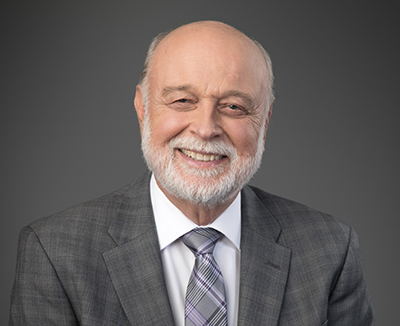 |
| November 2017 |
|
Pleasure, Purpose and Pride
There is so much to be thankful for. This time of year brings students back to once again fill our sidewalks and classrooms. Enrollment has stabilized after several years of slight decline, reflecting the demographic bubble hitting college campuses across the nation. Our second cohort of students at the San Manuel Gateway College in San Bernardino are also well underway. Many of our LLU students — over 600 of them — have returned from various mission trips this summer, telling their usual stories of wonder and passion for the world’s needs. And our goal of doubling the global involvement of our students is nearly accomplished. This continues to be reported as one of the most significant life-changing experiences for each of them. At our first Homecoming Weekend, held in March, I had a chance to talk with author Dan Buettner, who was on campus as part of the Healthy People lectures organized by the School of Public Health. Buettner is well known on our campus as the author who identified and reported on the Blue Zones®, the five healthiest places on the planet. We have been proud that Loma Linda was included, though it was actually Seventh-day Adventists living across California who were part of the Adventist Health Study–1 cohort on which he reported, not just our own community. Despite that detail, we accepted the adulation that made us all stand a bit taller. Buettner’s latest project he shared with me was his new research identifying the “Happiest Places” on the planet. He wouldn’t indicate where these were at the time, so I have been waiting for the National Geographic to come out to spill the beans. This month’s issue does just that. We didn’t make the list! Can you believe it? Using data from the Gallup World Poll on 140 countries, Buettner identified Denmark, Singapore and Costa Rica as the happiest countries. Boulder, Colorado, was a runner-up American city. Happiness, of course, is a tough variable to measure. Our graduates have been documented to have the most “meaning” in their lives as measured by whether their jobs make the world a better place. Buettner categorizes three broad areas as contributing to happiness — Pleasure, Purpose and Pride. For Danes, happiness comes from “doing what was worth doing,” as documented by the question of whether they “learned or did something interesting yesterday.” Singaporeans scored in the “life satisfaction” strand of happiness, called evaluative happiness. And the Costa Ricans experience pleasure through “experienced happiness,” or positive affect, despite having a lower economy. When I was teaching regularly, I often asked my students to pretend we had a “happiness meter” that could measure such feelings. If we turned on the meter and pulled up one evening outside a nice home in south Loma Linda, or outside a rundown apartment complex in east San Bernardino, or alongside one of our residence halls, who would win for being the happiest? Even deeper, are there certain life characteristics that give Pleasure, Purpose and Pride? Certainly doing something meaningful or worthwhile is significant, right? How about winning something, financial security, demonstrating compassion, or sacrifice for a worthy cause? Is happiness an accidental event, like winning the lottery, or something one can plan on, seek out, and accomplish? If we accept happiness as an appropriate ideal in life, it seems we should think about how to get it, or get there, or at least set some goals. We talk about such things here at Loma Linda University Health as we seek to develop wisdom, not just knowledge, and true professionals, not just good technicians. We certainly seek to imbue Purpose in our students’ lives. And while Humility is one of our core values, the kind of Pride that comes from accomplishing a task or dream seems OK. But I think these need to be scored alongside personal values, which are the things you look back on at the end of life and feel good about — a life well lived and a race well run. It seems to me that the concept of service to others is at the foundation of all this, a biblical principle that has stood the test of time and cultures. In an increasingly polarized country and world, this may be the best example we can provide — calling ourselves and others to be more concerned about each other. Ultimately, it is our spiritual values that truly bring a sense of completeness, a feeling of satisfaction to life, and a sense that we have value to ourselves and to our God. That spiritual connectivity can override many other threats to happiness, whether financial, health or relationships. With that goal in mind, I wish your own cup may be full of happiness as we approach our Thanksgiving season!
Richard Hart, MD, DrPH Vision 2020 – The Campaign for a Whole Tomorrow
|
November 1, 2017
Notes from the President — Pleasure, Purpose and Pride
Share


